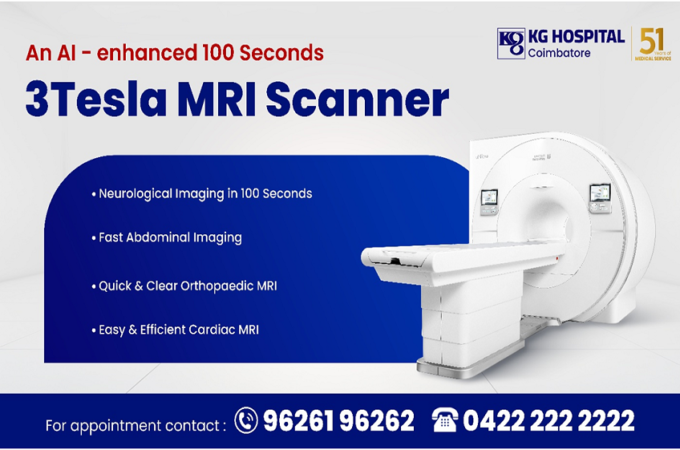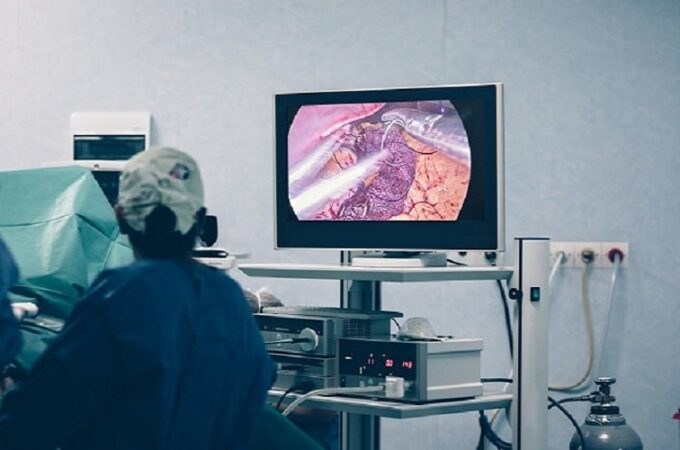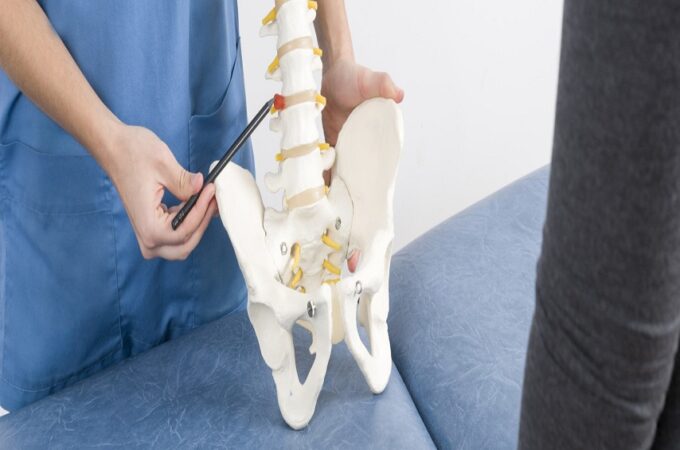
The Impact of Genetics on Personalized Spinal Fusion Treatments
In recent years, the landscape of spinal fusion surgeries has evolved with the advent of personalized medicine, which has moved surgical approaches away from the traditional one-size-fits-all method toward a more customized, patient-centered model. This transformation is largely driven by advances in genetic research, which now allow surgeons to consider the unique genetic makeup of each patient when planning and executing spinal fusion procedures. Dr. Larry Davidson, a specialist in this field, highlights how incorporating genetic data into surgical planning has the potential to significantly improving outcomes and minimizing complications. By utilizing each patient’s unique genetic profile, personalized medicine enables more precise spinal fusion techniques, accelerates recovery and enhances the success rate of these procedures on a global scale.
The customized approach of personalized medicine is particularly beneficial for spinal fusion, a surgery commonly used to treat spinal conditions like scoliosis, degenerative disc disease and spinal instability. While these procedures have traditionally been performed using standardized techniques, patient outcomes can vary widely. Some individuals experience a smooth and rapid recovery, while others face complications or require additional surgery. By tailoring each procedure to a patient’s genetic factors—such as bone density, healing speed and tissue response—surgeons can achieve more consistent and successful results. This approach reduces risks, maximizes patient satisfaction and brings a new level of precision to spinal fusion surgery.
The Role of Genetics in Spinal Fusion Outcomes
Genetics plays a profound role in determining how a patient’s body responds to spinal fusion surgery. Variations in genes that regulate bone metabolism, inflammation response and collagen formation are all critical factors that influence healing rates and the potential for complications. While some patients naturally heal quickly, others may face challenges like prolonged recovery times or even nonunion, where the bones fail to fuse properly. This discrepancy can be traced back to individual genetic predispositions, which can now be identified through pre-surgical genetic testing.
By understanding these genetic predispositions, surgeons can tailor treatment plans to align better with each patient’s biological profile. For instance, certain genetic markers can signal a higher risk of osteoporosis or other bone-related conditions, which may complicate the fusion process. Knowing this beforehand allows surgeons to take preventive steps, such as incorporating bone graft substitutes, using pharmacological interventions to strengthen bone tissue, or even altering the choice of implant material to better suit the patient’s genetic makeup. This proactive approach ensures that patients with a genetic predisposition to weaker bones receive the additional support necessary to achieve successful fusion.
Customizing Surgical Techniques Using Genetic Data
The integration of personalized medicine into spinal fusion surgeries goes beyond merely assessing risk factors; it extends to the customization of the surgical techniques themselves. For example, genetic testing can reveal how a patient’s body might respond to different materials, such as metal implants or bone grafts and whether they are likely to tolerate certain anesthesia drugs well. This insight allows surgeons to select materials and techniques best suited to each individual, minimizing adverse reactions and improving the likelihood of a favorable, long-lasting outcome.
Additionally, genetic data can guide post-surgical treatment plans. Due to genetic variations, some patients metabolize pain or anti-inflammatory medications differently, which can affect pain management and healing. By adjusting medication protocols according to these insights, doctors can manage pain more effectively, providing faster recovery with fewer side effects. For instance, a patient who metabolizes pain medications slowly might be given a lower dose to avoid prolonged sedation, while one with rapid metabolism may require more frequent dosing to maintain comfort. This fine-tuned approach to medication reduces trial and error, leading to a smoother recovery process.
The Long-Term Benefits of Personalized Medicine in Spinal Fusion
The long-term benefits of personalized medicine in spinal fusion surgeries are significant. Patients who undergo genetically informed procedures tend to experience fewer complications, shorter recovery times and higher overall satisfaction with their results. This is because these procedures are tailored to address their specific needs and biological makeup, reducing much of the guesswork and variability that have traditionally accompanied spinal fusion outcomes. With a more precise, data-driven approach, patients benefit from treatments that are better aligned with their individual health profiles, ultimately leading to safer and more reliable results.
Beyond the immediate post-surgical benefits, personalized medicine may also reduce the need for revision surgeries. When procedures are customized based on a patient’s genetic profile, they are more likely to yield a stable and durable fusion. This long-term stability reduces the chances of future spinal issues, lowering the likelihood of additional operations. For example, a fusion surgery informed by a patient’s genetic risk for rapid bone deterioration may incorporate additional support structures or bone-fortifying techniques, thus promoting durability and longevity in the outcome.
Future Implications: The Growth of Genetic Testing in Personalized Spinal Fusion
As genetic testing becomes more advanced and accessible, personalized medicine’s role in spinal fusion is anticipated to grow. With ongoing discoveries in genomics, researchers are likely to uncover even more genetic markers that can predict surgical outcomes, providing surgeons with a wealth of information to deliver highly individualized care. As genetic testing costs decrease, more patients may be able to access these customized surgical options, leading to broader adoption of personalized medicine in spinal fusion and beyond.
Furthermore, advancements in artificial intelligence (AI) and machine learning are likely to enhance the precision of personalized spinal fusion surgeries. AI can assist surgeons by analyzing vast amounts of genetic data, allowing for quicker and more accurate predictions regarding a patient’s likely response to surgery. For instance, an AI-powered tool could compare a patient’s genetic data against thousands of other cases to suggest the optimal surgical technique, choice of materials and post-operative care plan. These technological advancements not only streamline the preoperative planning process but also increase the likelihood of successful outcomes, even in complex cases.
The Transformative Potential of Personalized Medicine in Spinal Fusion
The integration of genetic data into spinal fusion surgeries marks a significant leap forward in the field of personalized medicine. By leveraging each patient’s unique genetic profile, surgeons can now tailor their approach to improve outcomes, reduce recovery times and enhance the overall success of the procedure. This shift from a standardized surgical model to one that is highly individualized offers a promising future for spinal fusion patients, especially those who may have previously faced higher risks or uncertain outcomes due to their genetic predispositions.
Spinal specialists like Dr. Larry Davidson envision a future where treatments can be finely tuned to each patient’s genetic makeup. By advancing spinal fusion from a one-size-fits-all procedure to a highly personalized and effective treatment, the field of personalized medicine stands to improve patient outcomes and elevate the standard of care for spinal conditions worldwide.





